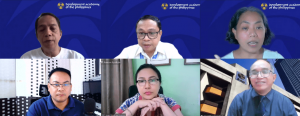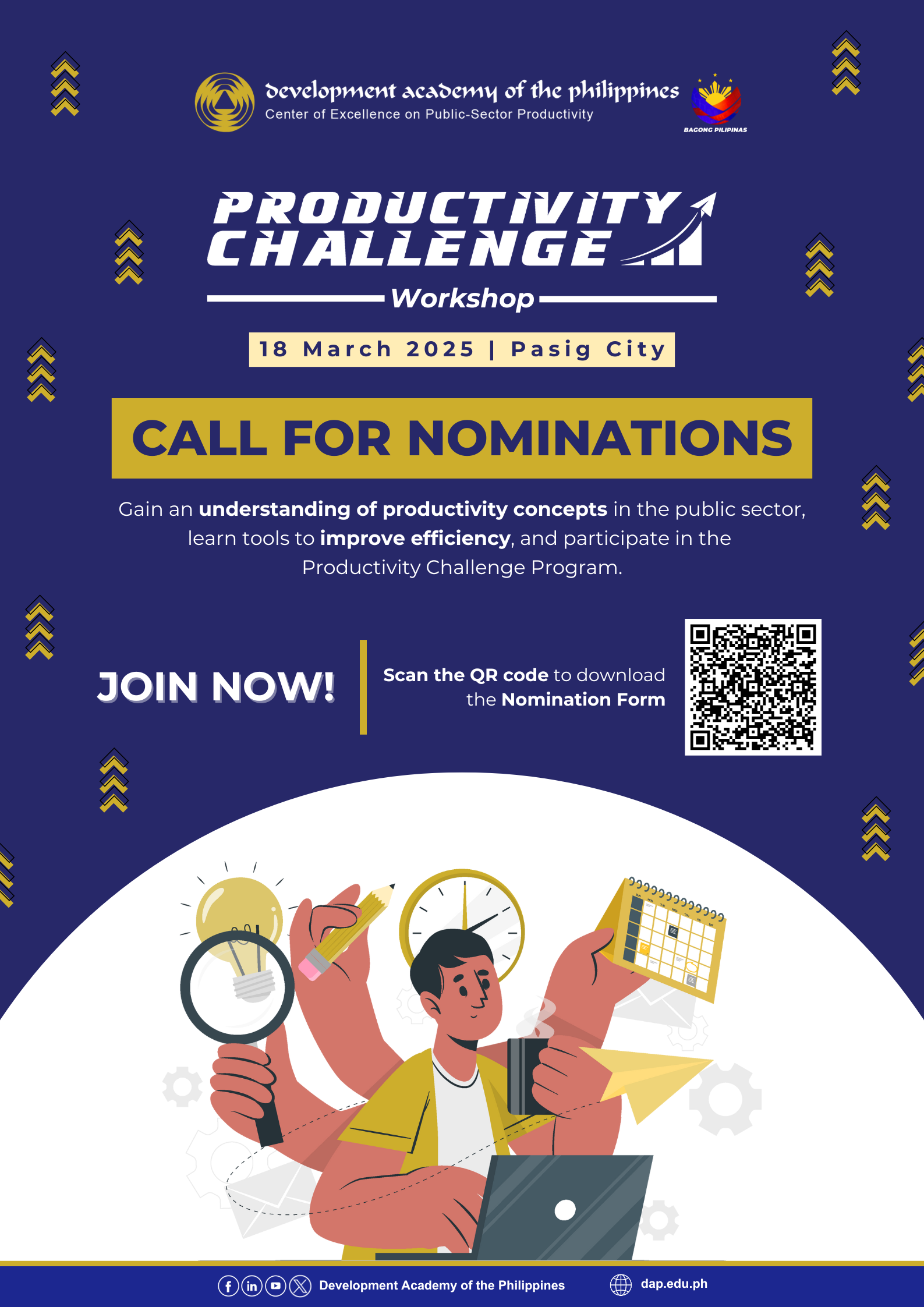
CLASS PHOTO. Photo Collage by Le Angela Juarez
The Development Academy of the Philippines, through its Center for Governance, held the 2022 Course on Basic Policy Process for some 55 participants from 25 institutions/agencies across various sectors in the country last April.
The 24-hour training course intended to strengthen the participants’ knowledge and understanding of the policy process as well to hone their abilities in drafting sound policies and delivering quality public service. In particular, the course sessions focused on principal policy theories and concepts, the mainstream tools in crafting effective and evidence-based policies, and the drafting and presenting of a policy paper.

TOP L-R: Comm. Sec. Erwin Lara, Dr. Alan Cajes, Former DBM Asec. Maxine Tanya Hamada;;
BOTTOM L-R: Dr. Jalton Taguibao and Dr. Jean Franco from UP, PRO Dir. Gilbert Lumantao
The course featured the following resource persons: Dr. Jalton Taguibao, associate professor at the University of the Philippines-Diliman, who handled the sessions on policy analysis and policy formulation; Dr. Alan Cajes, Vice President for Corporate Concerns at the DAP, who discussed the importance of conducting a stakeholder analysis; Maxine Tanya Hamada, former assistant secretary at the Department of Budget and Management, who expounded the cost-benefit analysis; Erwin Vicman Lara, committee secretary on Health of the House of Representatives, who tackled policy advocacy; Dr. Jean Encinas-Franco, also of UP, who discussed policy monitoring and evaluation concepts; and, Gilbert Lumantao, director of the DAP-CFG’s Policy Research Office (PRO), who handled the session on policy writing.
The course participants were asked to construct a decision matrix and prepare a policy paper during the workshops. They presented their policy drafts to a panel composed of resource persons Dr. Taguibao, Ms. Hamada, Dir. Lumantao, Dr. Cajes, and Dr. Franco for critiquing and comments as a course requirement. The policy papers presented focused on a variety of themes such as agriculture, health, peace and security, economic growth, poverty and social protection, education, and governance.




